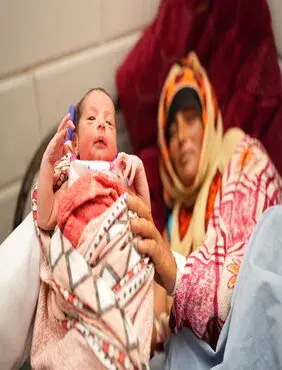Eight years on, Yemen remains one of the world’s largest humanitarian crises. A staggering 21.6 million people require some form of humanitarian assistance in 2023, and 80 per cent of the country’s population struggles to access food, safe drinking water and adequate health services. These are the results of multiple overlapping emergencies that have pummeled the country: violent conflict, economic collapse, recurrent natural disasters and severely disrupted public services.
Women and girls are bearing the brunt of the crisis. An estimated 80 per cent of the 4.5 million people displaced in Yemen are women and children. Approximately 26 per cent of displaced households are headed by women.
Without access to lifesaving medicines, about 1 million women who are estimated to deliver in 2023 are particularly at risk. Another 1 million women who would want to use family planning to postpone or avoid pregnancy will be at risk of unwanted pregnancies. Over 1.5 million pregnant and breastfeeding women are projected to experience acute malnutrition sometime in the course of 2023.
An estimated 7.1 million women and girls will require services to prevent and address gender-based violence in 2023. However, such services remain overstretched across Yemen, and completely absent in some hard-to-reach areas.
On 27 February, the UN and the Governments of Sweden and Switzerland co-hosted a High-Level Pledging Event for the Humanitarian Crisis in Yemen bringing together representatives of Member States, international organizations, UN Agencies, NGOs and civil society to raise funding to meet the humanitarian needs of Yemenis affected by the conflict. At the event, USD $1.16 billion was pledged, almost 30 per cent of the 2023 Humanitarian Response Plan appeal for $4.3 billion.
In 2023, UNFPA is appealing for US$70 million to sustain programmes for women and girls in Yemen. Only 12 percent of this funding appeal has been received by March 2023. Lack of funding is forcing UNFPA to scale back lifesaving services. In turn, thousands of women will lose access to reproductive healthcare facilities and more than a million women could lose access to gender-based violence services and mental health care.
In the first three months of the year, UNFPA's response reached nearly half a million individuals with life-saving reproductive health services, protection information and services and emergency relief, with support to 84 health facilities, 29 safe spaces, eight shelters and five specialized mental health centres.


